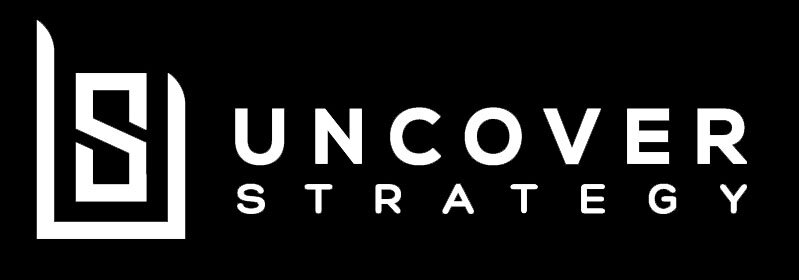Why You Need A Strategy
#noskipping
A few days ago, a study colleague and I from the University of South Australia met in a small and rustic café in my neighborhood. We know each other because we both studied (and still do) the same course for a few semesters now. This is also where I found out about my friends’ passion for photography, which we have talked about before after lectures.
Not only did we meet up because of our Uni connection, but also because my friend wanted his business to grow. He faced challenges and issues and asked for advice. Despite not being an expert in his domain, I wanted to know his challenges and see if I could be of any help regardless.
After sitting down in the little café named ‘The Barun’, I was surprised about the preparation work he did for our talk. An entire presentation featuring outstanding examples of his work and exciting places in India (where he started his passion) along with his current challenges and questions about pushing his business further. We jumped right in.
While he talked about his business, I saw his passion for the topic. His own thoughts about his current challenges made sense. For some of his challenges, I tried to give my own opinion and professional experience. However, I noticed that all his issues were surrounding immediate operational issues (which are also the most pressing). But, while his decisions all made sense, they gave away an unstructured look as a whole.
When I went to Taiwan in 2019, many signs were supposed to guide a tourist. And they mostly did this well (luckily, there is a lot of English in Taiwan), but some I couldn’t read. And they sometimes led to me walking in the wrong direction. You have to read signs and know where you want to go (e.g., formulate your strategy) - in travel and business.
Source: Simon Beuse (2019)
Where do you want to be?
This is why I decided to gain insights into why he wanted to do what he does and, most importantly, where he wants to be. He didn’t know precisely where, but he had a direction. Now, I tried to emphasize the need to define that goal for him in alignment with what the competition is doing (and it is fierce in this field). Overall, we should use our ultimate goal as the baseline measurement in everything we do every day (Lewko 2017, p. 17).
The significant suggestions that I found important, and I would also like to share with you, are the following:
1. Strategy drives & aligns decisions
The most important reason to have a strategy is to make sure all your efforts are pulling ‘on the same rope’. You want to make sure to stay absolutely laser-focused on the overall target that you defined for yourself. Only if you do this can you deliver a better value proposition to your customers than others (vLinkD 2017).
Let’s imagine that you are owning a German restaurant. Of course, you want to please your customers as much as possible, to have them come back and enjoy your food again. Pleasing everyone, you decide to put items on the menu that are usually not typical for your restaurant (I am not talking about your standard ‘fries on the side’ in a Korean restaurant, for example, which has been established as an international commodity almost). I am talking about adding many items to the menu from other cuisines.
What would that most likely incur? Your efforts would go into delivering great German food and Indian, Chinese, Korean, and possibly more. Visiting restaurants before, you might notice a pattern (at least this is my experience). Many menu items = average food; few menu items = fantastic food.
This is a direct correlation to how you should align your efforts towards one goal. To make the best German food. Leave the rest to the chefs of other cuisines. They are probably better at it anyway.
2. Strategy allocates resources
Closely related to the first reason, defining your strategy will determine where you want to allocate your available resources (albu-strategymanagement.com 2014).
Coming back to the example of the restaurant, you need to understand that your resources are limited. You can always do more of something. However, that ultimately also means that you will have to cut down on something else to do so. For our German restaurant example, this might mean putting efforts into scouting German-speaking staff. Having this language resource could enhance the experience and offer the casual chat in German to a customer or teach customers a few interesting German words (which might strengthen the customer relationship, ultimately letting them come back to this ‘authentic’ establishment). I am of course, not saying only if you are German, you should be able to work in this restaurant. That would be discrimination. No, that is never okay. I am trying to say that you might put in work to hire people with a particular skill (that one can learn) such as speaking German and cut down your efforts into possibly hiring different chefs from different cuisines.
I am not sure where I heard this citation (please let me know so I can credit the author here), but there is a saying:
‘The one who chases one rabbit is going home with a rabbit. However, the one who is chasing two rabbits at the same time will go home empty-handed’.
3. Strategy aids environmental scanning
Only if you are good at something you can succeed. But this statement on its own is a ‘false friend’ in strategy formulation. You don’t only have to be exceptional at something (and use both prior reasons to enforce this further) and have the competition in mind.
If you ask yourself: What am I good at? What can I do well? One answer could be: ‘I am good at tying my shoe.’
And without a doubt, if you demonstrate that you can tie your shoe in under 4 seconds – I would personally consider you good at this. You might even be able to do different kinds at a similar time – neat! But does this distinguish you from others? Absolutely not.
What this tries to express is: You not only have to be good at something, but what you do also have to be rare. If something is not rare (or there is no need for it on the market), no one will be willing to pay for it. In a strategy development process, you must determine what the competition is doing and cross-check your actions. This is crucial to not trap yourself into focusing only inwards – forgetting the outside world in which, however, you are operating.
What I am trying to say is: Have a plan.
Name it strategy or a business plan (even though there are nuanced differences). Or something else.
If you do not know where you want to be, how can you make the choices that get you there? Yes, you most probably must revise your plan. Multiple times. But that is normal, part of the path. And learning from mistakes is almost required (as you may have experienced yourself already or I have experienced multiple times now with my blog and hosting).
So go for it – make a rough draft. Then refine. Again. Then again. Having your goal in mind will help you make the right decisions in everything you do every day. Professionally, as well as personally.
I wish you all the best with whatever your goals are. Define what it is and craft your plan to get. Only then act.
What do you think about this? Are there exceptions to these rules? Have you had experiences where decisions were evident to you without reflecting your strategy?
Leave a comment down below or let’s have a chat – I am eager to hear from you.
Resources
albu-strategymanagement.com 2014, 5 Reasons Why Strategy is Important - Albu Strategy Management, 7 September, viewed 7 December 2020, <https://albu-strategymanagement.com/2014/11/5-reasons-strategy-important/>.
Lewko, T 2017, Making big decisions better: How to set and simplify business strategy, 1st edn, Routledge Taylor & Francis Group, London.
vLinkD 2017, The importance of business strategy, 19 November, viewed 7 December 2020, <https://www.vlinkd.com/future-links/the-importance-of-business-strategy/>.



